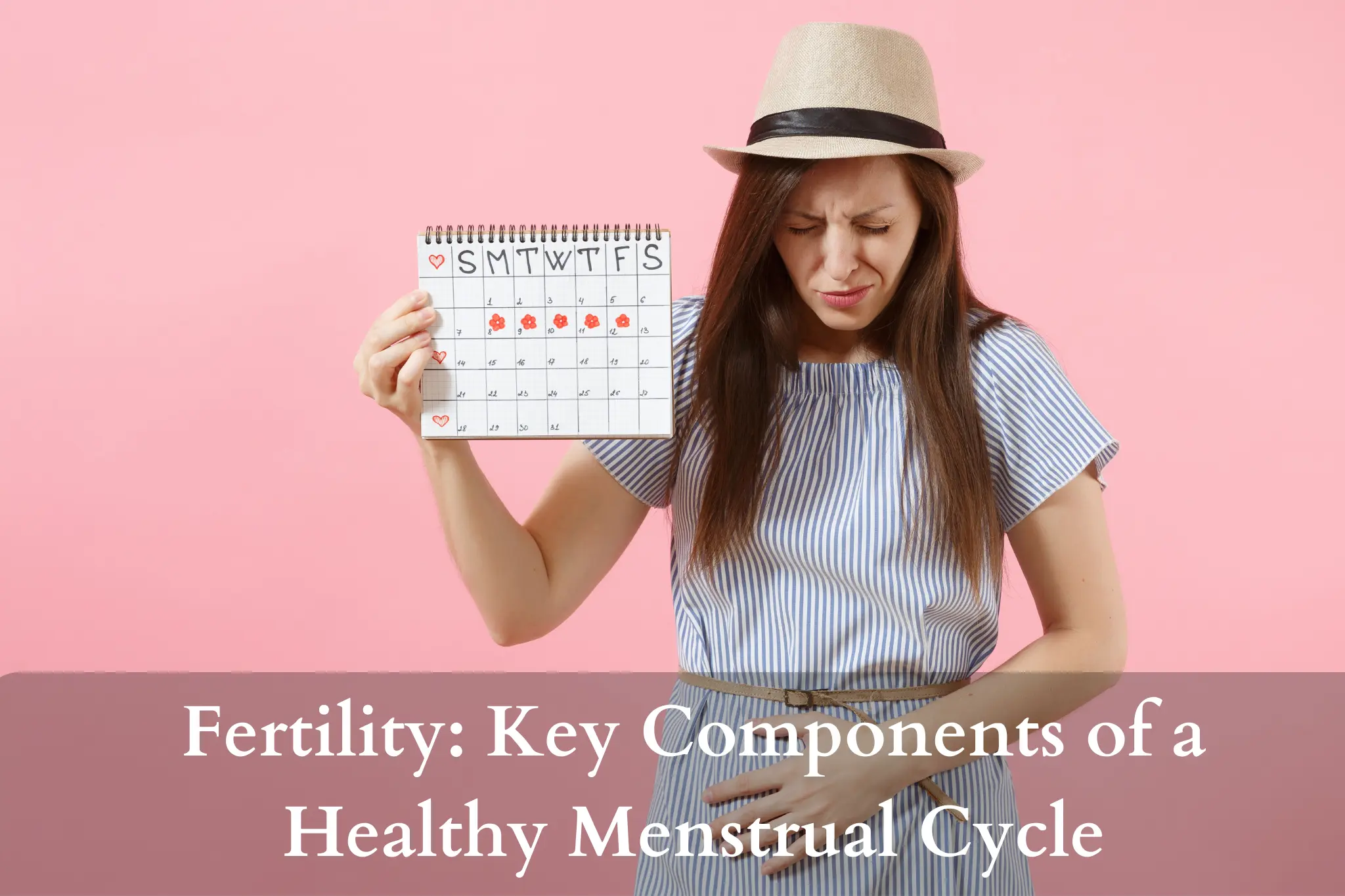For many women, understanding the intricacies of their menstrual cycle may seem like a daunting task. However, a healthy menstrual cycle is not only a sign of overall well-being but is also crucial for fertility. Achieving and maintaining a healthy menstrual cycle can significantly impact a woman’s ability to conceive.
In this blog post, we’ll explore the key components of a healthy menstrual cycle for fertility and how to promote and track them.
Key Components of a Healthy Menstrual Cycle for Fertility
Regularity
One of the fundamental components of a healthy menstrual cycle is regularity. A regular menstrual cycle typically ranges from 21 to 35 days, with most cycles falling between 25 to 30 days. A consistent cycle length indicates that the body is functioning optimally, and the ovaries are releasing eggs at regular intervals.
Irregular periods can be a sign of underlying health issues, such as polycystic ovary syndrome (PCOS) or hormonal imbalances, which can affect fertility.
Ovulation
Ovulation is the release of a mature egg from the ovary, and it is a pivotal event in the menstrual cycle for fertility. Typically occurring around the middle of the menstrual cycle, ovulation provides a window of opportunity for conception. To maximize your chances of getting pregnant, it’s essential to be aware of when you ovulate.
This can be determined by tracking changes in cervical mucus, basal body temperature, or using ovulation prediction kits.
Hormone Balance
Hormones play a crucial role in regulating the menstrual cycle and fertility. Two key hormones involved are estrogen and progesterone. During the first half of the cycle, estrogen levels rise, stimulating the development of the uterine lining and the maturation of eggs. After ovulation, progesterone takes over to maintain the uterine lining for potential implantation.
An imbalance in these hormones can disrupt the menstrual cycle and affect fertility. Conditions like hypothyroidism and PCOS can lead to hormonal imbalances, making it important to address any underlying issues.
Healthy Lifestyle
Maintaining a healthy lifestyle is essential for a healthy menstrual cycle and optimal fertility. Factors such as diet, exercise, and stress management can impact your overall health and reproductive system. A balanced diet rich in essential nutrients, including folic acid, iron, and antioxidants, can support reproductive health.
Regular physical activity helps to maintain a healthy weight and reduce the risk of conditions like PCOS and insulin resistance. Effective stress management techniques, such as yoga, meditation, or mindfulness, can help regulate the hypothalamic-pituitary-ovarian axis, which is crucial for a regular menstrual cycle.
Cervical Health
The cervical mucus plays a vital role in fertility. It changes in consistency throughout the menstrual cycle, becoming thinner and more slippery around the time of ovulation to facilitate sperm transport. Monitoring cervical mucus can help you identify your fertile window. Certain conditions or infections can affect the quality of cervical mucus, making it more challenging for sperm to reach the egg.
Uterine Health
A healthy uterus is essential for a successful pregnancy. Conditions such as fibroids, polyps, or endometriosis can affect the uterine environment and impede fertility. It’s important to address any uterine issues through medical evaluation and treatment if necessary.
Regular Menstrual Bleeding
The regularity and characteristics of your menstrual bleeding are also indicative of a healthy menstrual cycle. A typical period lasts 2 to 7 days and involves a moderate flow. Any abnormal bleeding patterns, such as heavy, prolonged, or irregular periods, should be investigated, as they may be a sign of underlying issues.
Final Thoughts
In conclusion, a healthy menstrual cycle is paramount for fertility. To boost your chances of conceiving, ensure regular cycles and hormonal balance. Monitor ovulation closely, and embrace a wholesome lifestyle. Prioritize cervical and uterine health and address any menstrual irregularities.
Facing challenges while trying to conceive? Seek guidance from a skilled obstetrics and gynecology doctor in Baramati, Dr. Apurva Maurya Deshpande at Deshpande Hospital. Dr. Deshpande can identify underlying issues and provide tailored guidance to enhance your reproductive health. By focusing on these key components of a healthy menstrual cycle, you empower yourself to optimize fertility and attain your family-planning goals.

